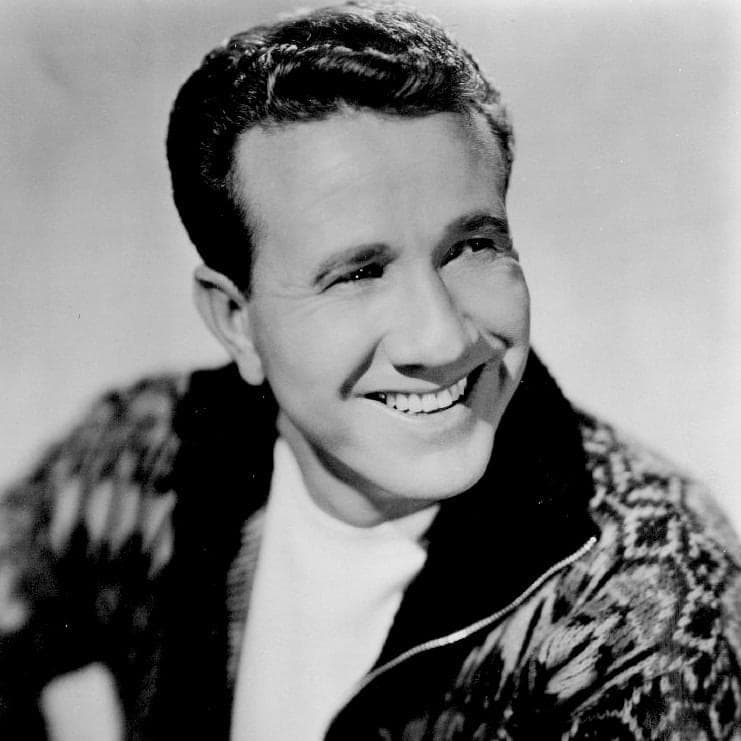
The Fading Echo of a Noble Sacrifice: How a Simple Trail Song Became an Enduring Western Eulogy
The year 1959 was a landmark moment for Western music, a time when the mythic tales of the American frontier found a new, powerful voice. At the heart of this resurgence stood Marty Robbins, a singer whose smooth baritone and flair for storytelling would forever cement his legacy in the country and pop music canons. The song in question, “Utah Carol,” was released as part of Robbins’ seminal album, Gunfighter Ballads and Trail Songs, an LP that didn’t just top the charts—it created a genre of its own.
While the album is best remembered for its chart-topping singles, the iconic “El Paso” (which reached No. 1 on both the Billboard Hot 100 and Hot Country Songs charts) and the beloved “Big Iron,” the track “Utah Carol” held its own quiet significance. As an album track, it did not receive an individual single release or chart placement, yet it was integral to the album’s success. The album itself, Gunfighter Ballads and Trail Songs, was a colossal hit, peaking at No. 6 on the U.S. Pop Albums Chart and eventually achieving Platinum certification, proof that listeners—our generation—were hungry for the authentic, dramatic spirit of the West that Marty Robbins delivered with such conviction.
What makes “Utah Carol” resonate so deeply, especially with those who remember the golden age of Westerns, is its adherence to the timeless narrative of selfless heroism. Unlike the dramatic, self-penned tragedies like “El Paso,” “Utah Carol” is a traditional trail song, a folk ballad passed down through the years, which Robbins recorded with his signature touch. The story is a straightforward but heartbreaking Western tragedy, depicting a cowboy named Utah, or Utah Carol, a name used to refer to both the man and, sometimes, his horse. While variations of the traditional lyrics exist, Robbins’ version focuses on the cowboy’s final, noble act: sacrificing his life to save his beloved friend and companion, Lenore, from a sudden and deadly stampede of cattle.
The song paints a vivid, almost cinematic picture of the peril. When the cattle suddenly turn, spooked and charging, Lenore is in their path, and Utah is thrown from his horse. Realizing the impossibility of reaching her, he performs the ultimate act of self-sacrifice: he uses his own body, wrapped in a red blanket, to divert the leading steers. This desperate, courageous maneuver saves Lenore’s life, but costs Utah his own as his body is trampled. The tragic ending is mitigated only by the memory of his bravery, captured in the preacher’s funeral words: “I hope we’ll all meet Utah at the roundup far away.”
The sheer meaning of “Utah Carol” is a reflection on the code of the Old West: loyalty, sacrifice, and the enduring nature of true friendship and love, placed above self-preservation. It speaks to a bygone era when a man’s word and his willingness to lay down his life for a loved one were the highest virtues. For the older reader, hearing the simple, plaintive melody and the vivid, unvarnished lyrics of “Utah Carol” is like opening a memory box filled with the simple, stark morality plays of our youth. It evokes the feeling of sitting around a campfire, long after the day’s work was done, listening to a guitar and a voice that held the dust and grit of the trail within its timbre.
Marty Robbins’ performance on this track is masterful. He strips away the pop polish he often applied, delivering the lyric with a quiet reverence, allowing the mournful narrative to carry the emotional weight. The acoustic guitar work is clean and evocative, the musical arrangement a perfect frame for the sad poetry of the range. Though it may not have been the headline act on Gunfighter Ballads and Trail Songs, “Utah Carol” is the very soul of the album, a perfect encapsulation of the trail song genre: a story of duty, devotion, and a hero who rides not toward riches or fame, but toward an inevitable, honorable end. It’s a tear in the eye, a lump in the throat, and a quiet moment of reflection on the heroes we once admired.